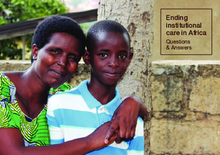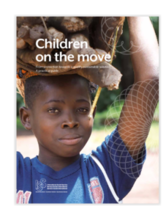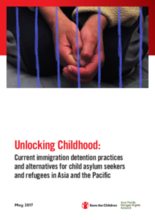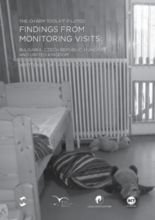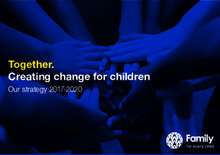Displaying 441 - 450 of 946
This paper highlights some of the challenges of reforming child care policy and offers recommendations to advance the political priority of care reform at the national level.
In this Q&A document, organisations that have joined forces to put an end to institutional care in Africa explain why and what they are doing to ensure all children grow up in the love of a family.
The manual is both a roadmap for policy-makers and a daily guide for professionals working with children on the move – from humanitarian workers and border staff to social workers responsible for creating individualised plans that put children first.
In this podcast episode, Annie E. Casey Foundation's Lisa Hamilton interviews Rafael López — the managing director of Accenture’s health and public services practice — about the challenges and opportunities for change in the American child welfare system.
This report examines current policy framework and practices in five countries, namely Malaysia, Thailand, Indonesia, Australia and the Republic of Nauru.
This country care review includes the care-related Concluding Observations adopted by the Committee on the Rights of Persons with Disabilities and the Committee on the Rights of the Child as part of their examinations of the periodic reports of Jordan.
In this episode of the Think Orphan podcast, Philip Darke speaks with Dr. Delia Pop about the impact of institutional care, deinstitutionalisation (DI), cross-cultural application, and how faith communities, missionaries, volunteers, and donors can work toward better outcomes for children outside family care.
This report is one of several outputs arising from the project “Identifying and Preventing Abuse of Children with Mental Disabilities in Institutions.” The report presents findings from the monitoring of European institutions where children with intellectual disabilities and children with psychosocial disabilities live on a permanent or semi-permanent basis, through the development of tools and guidance aligned with international human rights law and policy.
This document describes the 2017-2020 strategy of Family For Every Child. The Strategy paper highlights the mission and vision of Family For Every Child, provides examples of past work and key lessons, and describes its approach and goals to create change toward better care for children.
Using inter-agency action research in Sierra Leone, this chapter provides a case study on how a highly collaborative approach can enable child protection research to achieve a significant national impact.

